Alan Turing: Stolen items returned to UK school from US after 40 years
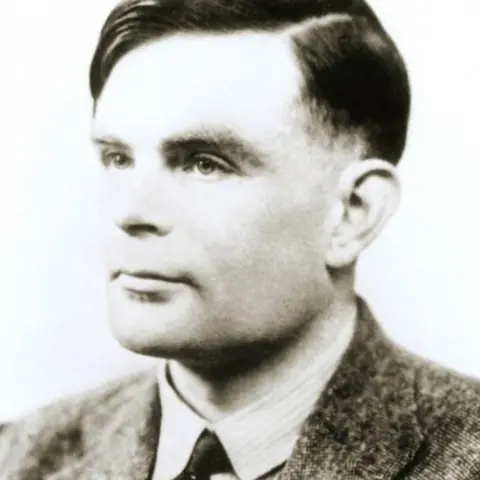 Science Photo Library
Science Photo LibraryItems belonging to World War Two Bletchley Park codebreaker Alan Turing, that were stolen from the UK almost 40 years ago, have been returned from the US.
The mathematician's miniature OBE medal is among 17 items that were taken from Sherborne School in Dorset by Julia Turing, who is no relation, in 1984.
A US civil case launched against her was settled out of court in 2020.
Digital copies of the items will be made available on the school's website.
They were found at Ms Turing's US home in Conifer, Colorado, in 2018, after she attempted to loan them to the University of Colorado for display, claiming to be a relative of the mathematician.
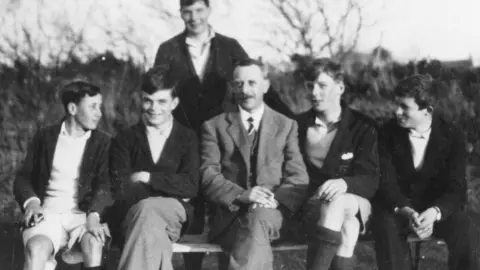 Sherborne School Archives
Sherborne School Archives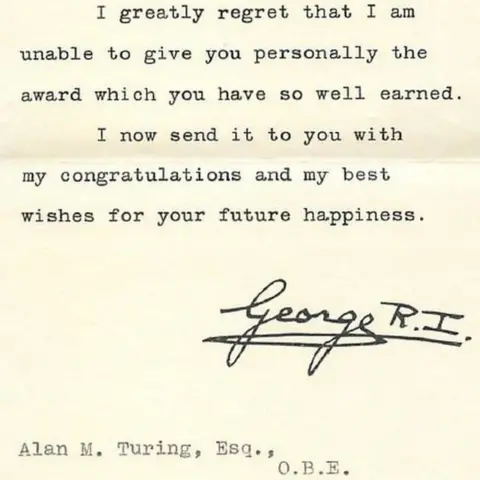 Sherborne School Archives
Sherborne School Archives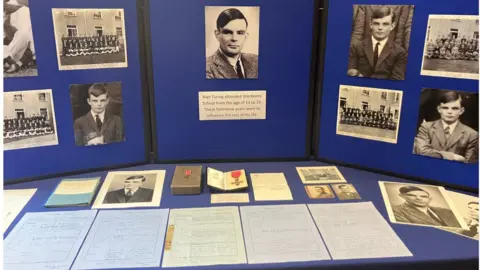
According to US court papers and Sherborne School, Ms Turing, who legally changed her name from Julie Schwinghamer in 1988, removed the items without permission from archives given to the school in 1965 by the Turing family, in memory of the time he spent there as a pupil.
A letter sent to Turing by King George VI, presenting him with his OBE honour, Turing's Princeton University PhD certificate, school reports and photographs are among the items that were taken.
Headmaster Dominic Luckett described Turing as one of the school's "most distinguished alumni".
"His crucial work as a cryptanalyst at Bletchley Park and his enormous contribution to the development of computing and artificial intelligence were not merely of vital practical significance at the time but continue to underpin many of today's most important intellectual and technological advances," he said.
"I am most grateful to all those, in the US and closer to home, who have worked so hard to ensure the safe return of these precious artefacts."

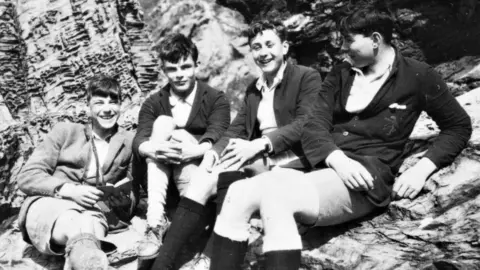 Sherborne School Archives
Sherborne School ArchivesWho was Alan Turing?
Born in Maida Vale, London, in 1912, Turing was not well known during his lifetime.
As well as attending Sherborne School, he gained a mathematics degree at King's College, Cambridge, and a PhD at Princeton University in New Jersey.
In 1936, he published a paper that is now recognised as the foundation of computer science.
Three years later he began working at Bletchley Park, in Buckinghamshire, where he helped develop the Bombe machine, which was capable of breaking secret German military messages sent using the Enigma machine.
In 1952, he was arrested because he was gay - homosexual acts were illegal in Britain at the time.
Turing died in 1954, aged 41, in Wilmslow, Cheshire, from suicide by cyanide poisoning - though this was disputed by his mother who argued he accidentally ingested cyanide during a chemistry experiment.
He was posthumously pardoned in 2013, and in 2017 the government agreed to officially pardon all men who had criminal records for being homosexual. This pardoning has become known as the Alan Turing law.
In 2019, Turing was named the most "iconic" figure of the 20th Century and he became the face of the new design of the Bank of England's £50 note.

Turing's nephew Sir Dermot Turing, who also attended Sherborne School, previously said there was "very, very little physical stuff in existence that has anything to do with Alan Turing".
He added the return of the items would "honour what my grandmother wanted".
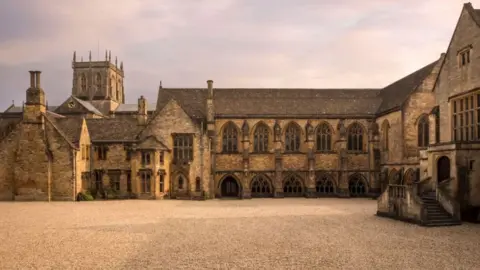 David Ridgway
David Ridgway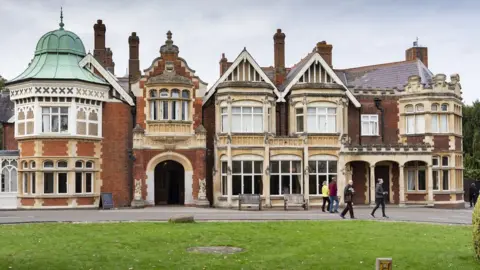 Bletchley Park Trust
Bletchley Park TrustTuring's research papers and theory work is held at the National Archives.
Apart from Sherborne School, the only other places believed to hold more of his personal belongings are Bletchley Park and Cambridge University's King's College.

Follow BBC South on Facebook, Twitter, or Instagram. Send your story ideas to [email protected].
